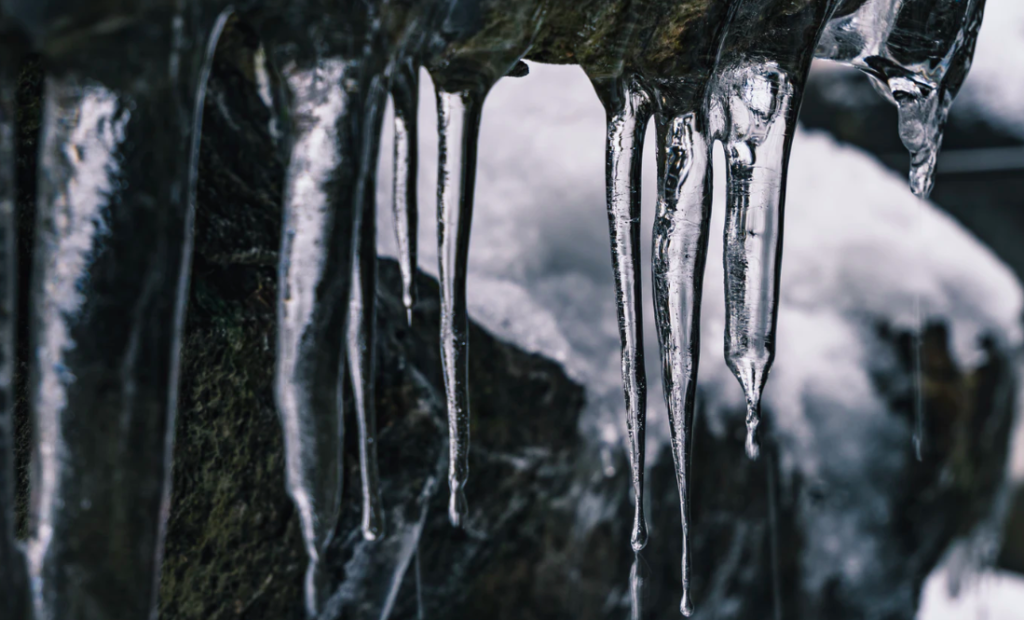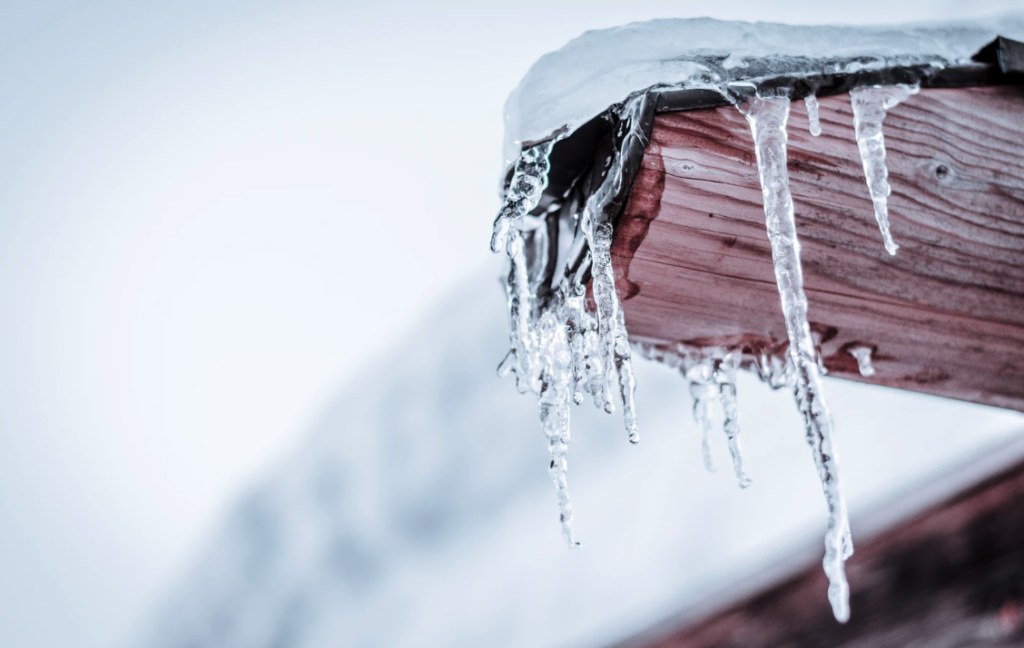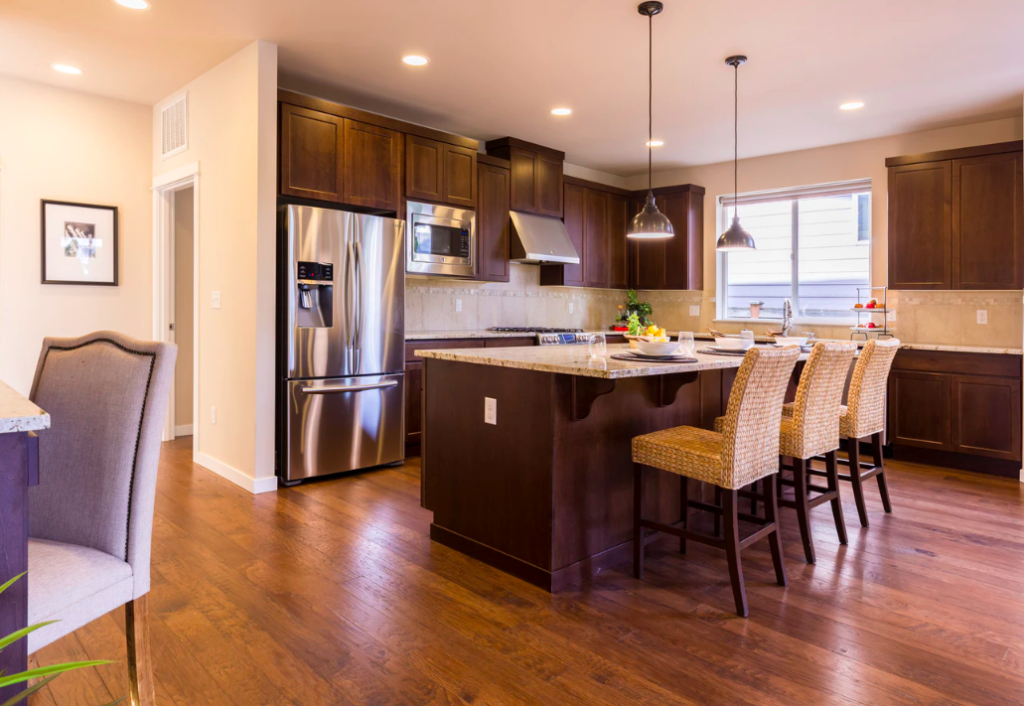Is winter a good time to install stone countertops? In some ways, that depends on your opinion. However, it also depends on what types of issues you’re willing to face while installing your countertops. There are both pros and cons to a winter installation. Either way, it’s a good idea to know what you’re getting into before you go ahead with this important project!

Cold temperatures, home heating, and floor damage
If you plan to install countertops in the winter, keep in mind that whoever’s installing your countertops will be coming and out of your house quite a bit. Especially in some areas, temperatures during the winter are very cold. Obviously, with someone repeatedly coming and out of your home, you’ll be letting in a great deal of cold air. This means you may end up spending quite a bit more than usual on keeping your home’s interior at a decent temperature.
Additionally, a countertop installer will likely be tracking in plenty of snow and mud during the winter. If you have wood floors, this may become a problem. Too much moisture can cause floor damage. This is especially pertinent if your kitchen renovation already boasts wood floors.
Cold temperatures and plumbing issues
Sometimes, a countertop installment might involve disconnecting and reconnecting different types of plumbing. As we all know, cold temperatures and plumbing often don’t mix well. Whether your new countertops are in the kitchen, the bathroom, or another part of the house, keep in mind that cold temperatures can cause plumbing issues and think about what you’re going to do in advance. Additionally, if your pipes do freeze while they’re disconnected, don’t try to use them or even touch them – you may end up causing damage to the pipes if you do so.

Extreme cold or moisture can damage some countertops
Unfortunately, some countertops are sensitive to extreme cold. For example, quartz countertops aren’t just sensitive to heat. They can also crack if they’re exposed to very cold temperatures. Again, in some areas, winters are extremely cold, meaning that a winter installation might damage your countertops before they’re even completed.
Marble countertops also run the risk of damage during winter. While marble typically holds up well against cold temperatures, moisture is an issue for this porous stone. For example, if snow covers a marble slab for a long time, the moisture may eventually make its way into the stone and cause it to crack. So, make sure a marble countertop is well-protected while it’s transported and installed.
What about outdoor countertops?
What if you’re installing countertops outdoors during the winter? Obviously, this can present some special challenges.
- First of all, choose your countertop wisely. As we mentioned, some countertops are more sensitive to cold temperatures than others. Granite and quartzite are some of the most durable materials when it comes to extreme temperatures.
- Second, make sure to protect your countertops. If you’ve chosen a marble countertop, for example, don’t allow snow or ice to accumulate on its surface.
- Realize that using caulk is harder during below-freezing temperatures. In fact, if you choose to caulk your countertops during cold temperatures, the caulk may not cure well and will likely cause you problems later on. Usually, this is due to the moisture that comes with cold weather.
On the bright side, you might get a discount
Since most homeowners tend to install their countertops in the spring and summer, you might get a discount in the winter. Countertop installers won’t be as busy as they will during the rest of the year, and there’s a possibility that you’ll benefit from that when it comes to cost. So, if a winter installation doesn’t bother you, spending less on your countertops is definitely a benefit to installing them in the winter.
Some countertops also cost less during the winter

Interestingly, countertop installation isn’t the only thing that costs less in the winter. Some countertops cost less during the winter as well. Granite, for example, is likely to be less expensive during wintertime. So, go ahead and buy that granite countertop you’ve been wanting now that winter is around the corner!
Winter countertop installments come with pros and cons, but they aren’t for everyone
As you can see, there are both pros and cons to winter countertop installments. Obviously, installing a countertop during the cold months of the year isn’t for everyone. In the end, however, it’s up to you to decide if the cost outweighs the benefit or vice versa. There’s no shame in waiting until spring or summer to replace your countertops!

Recent Comments